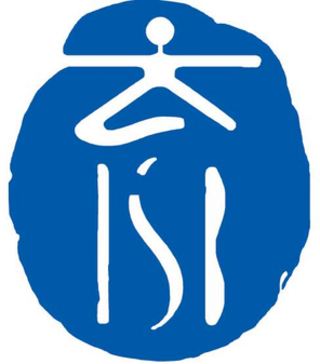
The International School of Beijing is a non-profit international coeducational day school in Beijing, China. The school was founded in 1980 and offers a dual English and Chinese language program for students from EY to Grade 12. ISB is recognized by the Beijing Education Commission (BEC) as an independent school for expatriate children.

The National Merit Scholarship Program is a United States academic scholarship competition for recognition and university scholarships administered by the National Merit Scholarship Corporation (NMSC), a privately funded, not-for-profit organization based in Evanston, Illinois. The program began in 1955.
Student financial aid in the United States is funding that is available exclusively to students attending a post-secondary educational institution in the United States. This funding is used to assist in covering the many costs incurred in the pursuit of post-secondary education. Financial aid is available from federal and state governments, educational institutions, and private organizations. It can be awarded in the form of grants, loans, work-study, and scholarships. In order to apply for federal financial aid, students must first complete the Free Application for Federal Student Aid (FAFSA).
A school counselor is a professional who works in elementary, middle, and high school to provide academic, career, college access/affordability/admission, guidance, and social-emotional competencies to all students through a school counselling program.
Collins College was a for-profit college with an emphasis in the fields of visual arts and design. Owned by Career Education Corporation, Collins College had two campuses. The main campus was located in Tempe, before moving to southeast Phoenix in 2009. A smaller branch campus was located in west Phoenix from 2003 until circa 2012.
Flintridge Preparatory School, familiarly known as Flintridge Prep or simply Prep, is a coeducational day school for grades 7-12. Founded in 1933, it is located in La Cañada Flintridge, California, United States.

Western Governors University (WGU) is a private, non-profit online university based in Millcreek, Utah. The university uses an online competency-based learning model. Degrees awarded by WGU are accredited by the NWCCU, ACBSP, CAEP, CAHIIM, and CCNE. The university was founded by 19 U.S. governors in 1997 after the idea was formulated at a 1995 meeting of the Western Governors Association to expand education offerings to the internet.
In the United States, higher education is an optional stage of formal learning following secondary education. It is also referred as post-secondary education, third-stage, third-level, or tertiary education. It covers stages 5 to 8 on the International ISCED 2011 scale. It is delivered at 4,360 Title IV degree-granting institutions, known as colleges or universities. These may be public or private universities, research universities, liberal arts colleges, community colleges, or for-profit colleges. US higher education is loosely regulated by the government and by several third-party organizations. Attending college has been thought of as "a rite of passage" to which the American Dream is deeply embedded.
The Potomac and Chesapeake Association for College Admissions Counseling (PCACAC) is a professional organization that was founded in 1964 for those who work with students in the transition between high school and college.
Payap University, established in 1974, is a private and non-profit institution founded by the Foundation of the Church of Christ in Thailand. Payap University is a liberal arts and pre-professional school offers a doctoral degree in peacebuilding; masters in divinity, linguistics, TESOL, law, MBA and music; and bachelor degrees in arts, sciences, accountancy, business, economics nursing, law, and Christian theology. Payap is a founding member of the Association of Private Higher Education Institutions in Thailand and an active member of the Association of Christian Universities and Colleges in Asia, as well as the Association of Southeast Asian Institutions of Higher Learning.
The Integrated Postsecondary Education Data System (IPEDS) is a system of interrelated surveys conducted annually by the National Center for Education Statistics (NCES), a part of the Institute for Education Sciences within the United States Department of Education. IPEDS consists of twelve interrelated survey components that are collected over three collection periods each year as described in the Data Collection and Dissemination Cycle. The completion of all IPEDS surveys is mandatory for all institutions that participate in, or are applicants for participation in, any federal financial assistance program authorized by Title IV of the Higher Education Act of 1965, as amended.
An online college fair, or virtual college fair, is a relatively recent phenomenon that consists of a collection of colleges and universities that communicate and provide information online during a specific timeframe. An online college fair operates according to several of the usual conventions of a “brick and mortar” college fair: there are event halls, schools have booths that prospective students and/or parents can visit to exchange information, and there are speaker sessions by various admissions and education experts. However, the entire fair is contained online, and therefore an online college fair can also have many of the characteristics of a virtual world. One of the main benefits of an online college fair is that travel cost is eliminated for both school representatives and students.
CollegeWeekLive is a free, online college fair which features approximately one hundred and fifty colleges and universities worldwide. These virtual college fairs offer a convenient way for students, parents, and educators to interact with college admissions counselors. On average, CollegeWeekLive experiences over 1 million visitors each year. CollegeWeekLive hosts online admissions events throughout the year where CollegeWeekLive website visitors can watch video presentations which feature admissions experts, and participate in live video and text chats. CollegeWeekLive has monthly and event scholarships.

The Early Academic Outreach Program (EAOP) was established in 1976 by the University of California (UC) in response to the California State Legislature's recommendation to expand post-secondary opportunities to all of California's students, including those who are first-generation, socio-economically disadvantaged, and English-language learners. As UC's largest academic preparation program, EAOP assists middle and high school students with academic preparation, admissions requirements, and financial aid requirements for higher education. The program designs and provides services to foster students' academic development, and delivers those services in partnership with other academic preparation programs, schools, other higher education institutions and community/industry partners.
The Overseas Association of College Admissions Counselors (OACAC) was founded in 1991. The association began when a group of primarily European counselors met and approached the National Association of College Admissions Counseling (NACAC) about the creation of an affiliate regional organization that would represent overseas counselors. OACAC became a chartered regional association.

The Federal TRIO Programs are federal outreach and student services programs in the United States designed to identify and provide services for individuals from disadvantaged backgrounds. They are administered, funded, and implemented by the United States Department of Education. TRIO includes eight programs targeted to serve and assist low-income individuals, first-generation college students, and individuals with disabilities to progress through the academic pipeline from middle school to post-baccalaureate programs. TRIO also includes a training program for directors and staff of TRIO projects. Their existence is owed to the passing of the Higher Education Act of 1965.
Sessions College for Professional Design is a private for-profit online college in Tempe, Arizona. It offers associate degrees, undergraduate certificates, and vocational certificates. It is accredited by the Distance Education Accrediting Commission (DEAC) and accredited at the certificate program level by Middle States Commission on Secondary Schools.

The California Bureau for Private Postsecondary Education (BPPE) is a unit of the California Department of Consumer Affairs charged with regulation of private postsecondary educational institutions operating in the state of California.

National University (NU) is a private university with its headquarters in San Diego, California. Founded in 1971, National University offers academic degree programs at campuses throughout California, a satellite campus in Nevada, and various programs online. Programs at National University are designed for adult learners. On-campus classes are typically blended learning courses, concentrated to four weeks or on weeknights with occasional Saturday classes. The university uses asynchronous learning and real-time virtual classrooms for its online programs.
Undocumented youth in the United States are young people living in the United States without U.S. citizenship or other legal immigration status. An estimated 1.1 million undocumented minors resided in the U.S. as of 2010, making up 16% of the undocumented population of 11 million. Undocumented students face unique legal uncertainties and limitations within the United States educational system. They are sometimes called the 1.5 generation, as they have spent a majority of their lives in the United States.







